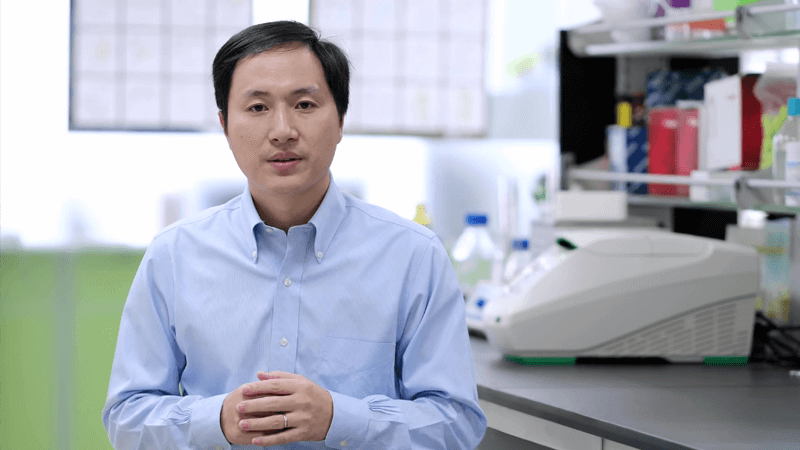Gene-edited twin babies may have been altered in a way which will make them more likely to die young, new research suggests.
The recent experiment, in which Chinese professor He Jiankui genetically modified two human embryos, in an attempt to make them resistant to HIV, provoked outrage across the world.
But the study in Nature Medicine indicates that people who naturally have the mutation he was trying to artificially recreate are significantly more likely to have shortened life-expectancy.
‘Very dangerous’
In order to create babies with HIV immunity, Prof He edited the CCR5 gene which is involved in fighting off infections such as flu.
Researchers at the University of California, Berkeley, studied more than 400,000 people from the UK, and discovered that those who only had the mutated version of the CCR5 gene were 21 per cent more likely to die between the ages of 41 and 78.
Prof Rasmus Nielsen, from the university, said, it is “very dangerous to try to introduce mutations without knowing the full effect of what those mutations do”.
He added: “In this case, it is probably not a mutation that most people would want to have. You are actually, on average, worse off having it.”
Harmful experiment
Dr Anthony McCarthy, of the Society for the Protection of Unborn Children, said the twin girls were “subjected nonconsensually to a dangerous experiment more likely to harm them than to help them and perhaps also their descendants”.

